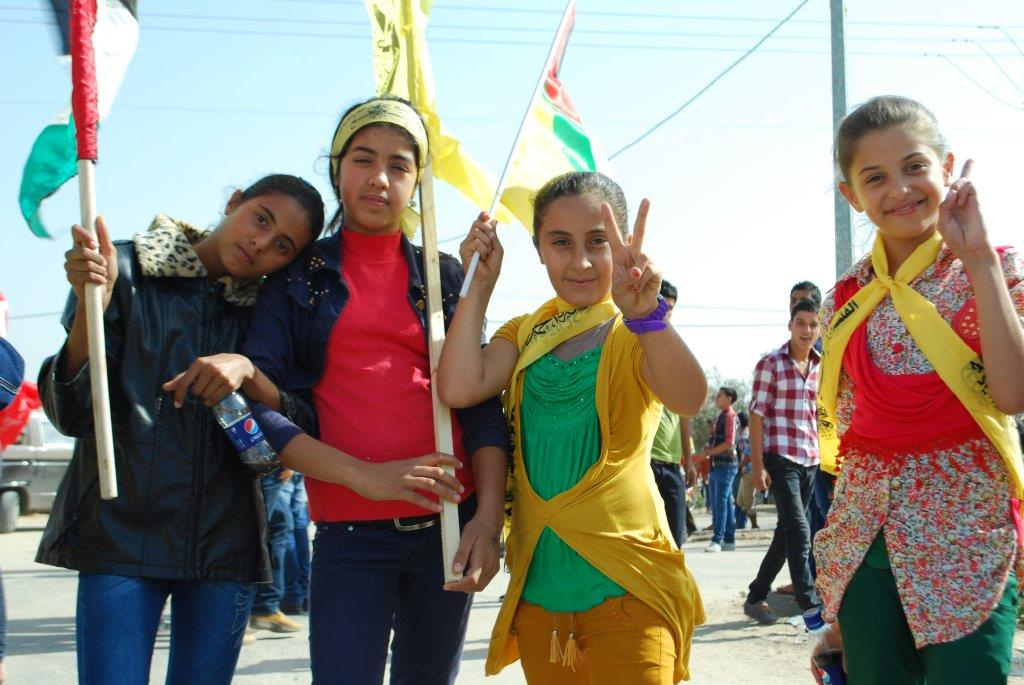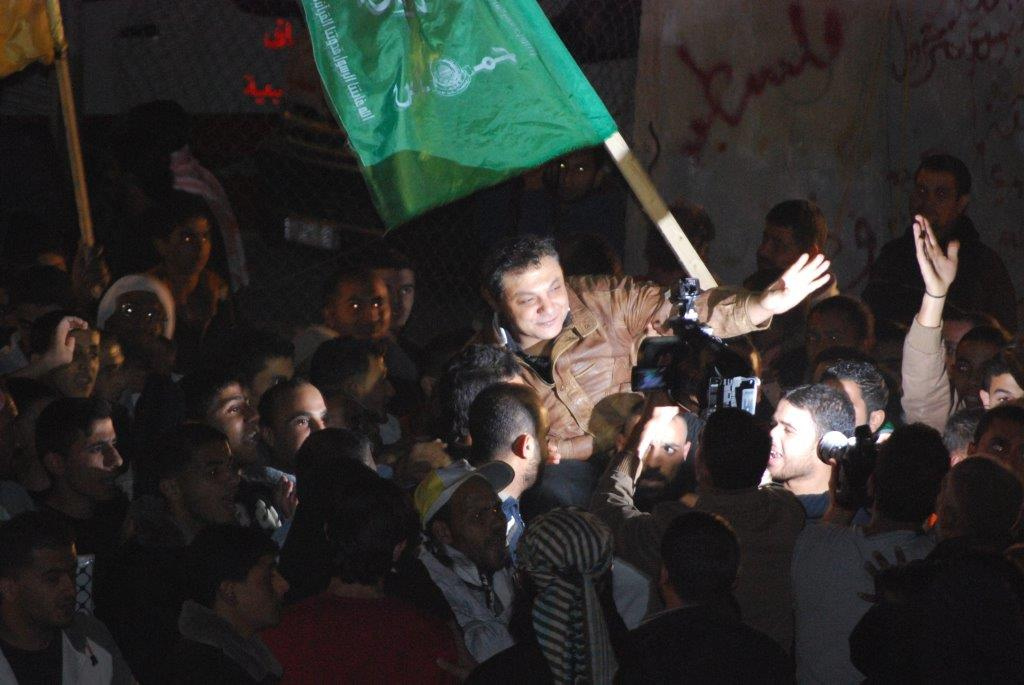Tag: Erez Crossing
-
Photos: A hero returns to Gaza
5th November 2013 | International Solidarity Movement, Charlie Andreasson | Gaza, Occupied Palestine What could be a more appropriate theme for this Monday demonstration for prisoners than those recently released by Israel? Would it have been possible to have a different one? Possible, but hardly appropriate. On the street outside the Red Cross, a temporary stage…
-
Photos: Hundreds greet freed detainees at midnight rally in northern Gaza Strip
30th October 2013 | International Solidarity Movement, Charlie Andreasson | Gaza, Occupied Palestine As part of the resumption of negotiation between Israel and the Palestinian Authority, 26 Palestinian prisoners were released overnight Wednesday from Ofer prison in Israel. Five were transferred to the Gaza Strip via the Erez checkpoint in Beit Hanoun. This was the second of…
-
Two fishermen arrested by Israeli navy and their boat confiscated
17th June 2013 | International Solidarity Movement, Rosa Schiano | Gaza, Occupied Palestine During the night of Friday, June 7, 2013 there was an escalation of attacks by the Israeli navy against the fishermen of Gaza. The Committee of the fishermen of the Union of Agricultural Workers Committees had reported attacks along the coast of…


